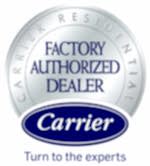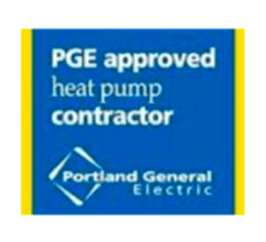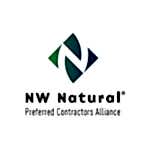A simple thing inside your home that can lower your bills and help you breathe easier is your HVAC air filter. Air filters are critical in maintaining indoor air quality and protecting your HVAC system from damage. Let’s dive into the details and find out how.
What is an Air Filter?
HVAC air filters are like the unsung heroes of your home. They quietly do their job, trapping dust, pollen, pet dander, and other small particles from the air you breathe. Imagine them as the bouncers of your HVAC system, only letting in the good stuff and keeping the riff-raff out.
These filters are super important for a couple of reasons. First, they help keep your indoor air clean, which is great for anyone with allergies or asthma. Second, air filters protect your HVAC system from getting clogged up with dust and grime, which can make it work harder and wear out faster.
What is a MERV Rating?
No, MERV isn’t a robot from a sci-fi movie. MERV, or Minimum Efficiency Reporting Value, is a standard that rates the overall effectiveness of air filters. It tells you how effective your air filter is and what size air particles it can trap. MERV ratings range from 1 to 20, with higher ratings indicating finer filtration. A MERV value of 9 to 12 is generally recommended for most household HVAC systems.
MERV vs HEPA
HEPA gets mentioned a lot when talking about air filters. It stands for High-Efficiency Particulate Air and has a densely tight filtration that is often used in medical centers, clean rooms, and sensitive labs. Because of the high standards of HEPA filters, they can remove up to 99.7% of airborne particles. However, HEPA filters may not be suitable for all HVAC systems because their density can constrict the airflow through the system, potentially causing damage and increasing energy bills due to overwork.
FAQs About Air Filters
While air filters are simple, the hows, whats, and whys might be a little confusing. Here are some common questions about air filters:
How often should I change my air filter?
Generally speaking, it is recommended that you change your air filter every 1 to 3 months, but check with your HVAC technician for more specific advice. It depends on a few factors, like the type of filter you have, where you live, and if you have pets.
What happens if I forget to change my air filter?
If you forget to change your air filter, it can lead to a host of problems. The air filter can become clogged with dust and debris, leading to reduced air filtration and indoor air quality. This can cause health problems for you and your HVAC system. Your HVAC system will need to work harder than usual, leading to inefficiency and higher energy bills, while your family may have allergies and respiratory issues. Over time, this can cause serious health and HVAC equipment damage.
What if I don’t use an air filter?
Skipping the air filter in your HVAC system may seem like a way to save money, but it is a decision that can have significant impacts. Without an air filter, your HVAC system becomes vulnerable to all sorts of airborne particles like dust, pollen, pet dander, and more. These particles can accumulate inside the system, causing it to work harder and potentially leading to damage or breakdown. It can also affect your air quality leading to potential health problems.
What are the different types of air filters?
Air filters come in a variety of types, each designed to meet specific needs and situations: Fiberglass, pleated, and electrostatic air filters are the most common. Some HVAC systems use a hybrid method, combining a couple of different types of devices, such as a UV light, with a pleated filter. Higher-quality air filters use pleats to capture incredibly small particles, including bacteria and sometimes viruses, preventing them from recirculating.
Is there a best type of air filter?
The best type of air filter really depends on your specific needs. An air filter that is too dense can make it hard for your HVAC system to get airflow, and one that is too porous won’t catch air particles. Talking with an HVAC professional about picking the right air filter for your HVAC system and home environment will help you find the sweet spot for your air filtration.
What size air filter should I use?
Determining your air filter size should start with locating your existing air filter. Make sure that the existing air filter doesn’t have any gaps or lines up wrong. If it does have gaps, it might be the wrong size. Measure the filter (height, width, thickness) and look for the matching size at your local hardware store or online. This isn’t something to guess at, so contact an HVAC professional if you need help.
Where can I find the air filter size?
Your HVAC system’s manual will be your best friend in determining the right air filter size. Otherwise, measuring your current air filter (provided it is the perfect size) will help you. You can also talk with your HVAC technician on your next tune-up.
Where is my air filter located on my HVAC?
Every home’s HVAC system is different, but generally speaking, the air filter will be located either in the return vent of your system or near the blower motor. The air filter is usually located right before the air exits the vent, similar to how a dryer filter is located right before exiting the dryer vent. If you are still having trouble locating it, try consulting a professional HVAC technician for help.
Where can I buy air filters?
There are plenty of online and in-store options to find air filters for your home. The size and type of HVAC system will determine the specific filter you need, so it’s important to double-check those details carefully before you buy. Ask your local HVAC contractor for the brands they recommend you use based on your setup.
Changing your HVAC air filter doesn’t have to be hard or expensive. A simple checkup every 1 to 3 months can help you save on energy costs and keep your family in good health.
Read next: HVAC Maintenance Tips to Keep Your System Running All Year Long
Which Air Filter is Right for You
Studies show that indoor air quality might be even worse than polluted outdoor air. Determining the right air filter for your home will depend on a few things, like the size of your HVAC system, pets, indoor smoking, allergies, candle burning, and other indoor pollutants.
Higher-quality air filters with higher MERV ratings are more effective at trapping smaller particles, such as pollen and pet dander. It’s important to talk to an HVAC technician and read the ratings of the filter before purchasing. You might also consider installing UV lights to kill bacteria in the air or activated carbon filters to remove odors.
HVAC Air Filter Professionals in Portland
Improve the efficiency of your furnace and enjoy cleaner air by changing your air filters regularly and investing in high-quality air filters. Jacobs Heating & Air Conditioning can help you find an air filter that fits your home’s needs so your HVAC system runs efficiently and reduces indoor air pollutants.
Our consultants here at Jacobs Heating and Air Conditioning would be more than happy to meet with you and discuss options on how to improve the air quality in your home. We offer in-home consultations in addition to products, installations, and repairs. Reach out to us with any questions.










